WHY?
After nourishment, shelter and companionship, stories are the thing we need most in the world.” – Phillip Pullman
We live in an age when communication via the written word is prolific, immediate and disposable. However, we believe that writing in a thoughtful, considered manner is still a vital form of communication and self-expression. As a species, we are storytellers, and the complex process of writing not only develops our technical skills but expands our moral, social and cultural experiences. The need for reviewing and improving develops our attention to detail and resilience.
WHY?
During their time at St Peter’s our children will have opportunities to:
- Experience and respond to a variety of writers in high quality texts.
- Write independently from the earliest stages.

- Use a variety of resources to promote independence, for example Working Walls in classrooms.

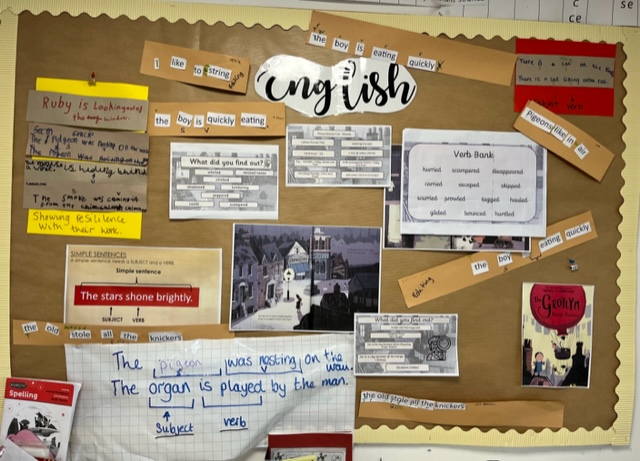
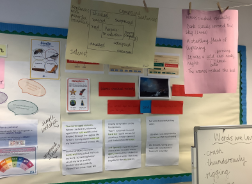
- Write for audiences other than their teacher ie write for authentic outcomes (see curriculum map.)
- Write for audiences other than their teacher ie write for authentic outcomes (see curriculum map.)
- Feel their work is valued by others through feedback and by having their work published and displayed.

- Write about a wide range of topics, issues, ideas and incidents, organising their writing in an appropriate manner for the reader.
- Learn to plan, draft, proof-read and revise their work.
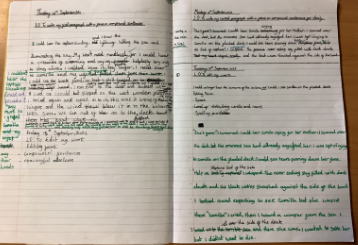
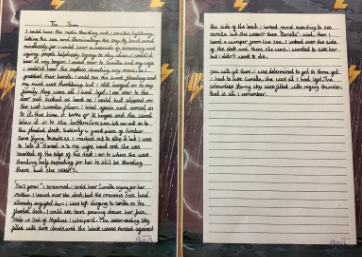
- Develop a knowledge and use of grammar within the context of their writing.
- Learn to spell using the Read Write Inc approach.
- Produce neat, correctly joined handwriting which will support their learning of spelling and create a sense of pride in their work.

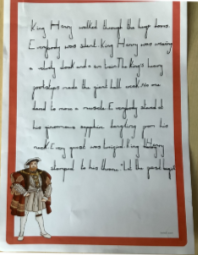
- We base our teaching on Pie Corbett’s Talk for Writing approach and Jonathan Lear’s sentence slides as described in his book The Monkey-Proof Box. This gives us the combination of a focus on a carefully selected rich text for ideas and vocabulary with clear instruction on sentence construction. We use this same approach to produce writing in all subjects.
- Our lesson objectives are taken from the 2014 National curriculum and are mapped out in a skills progression document which ensures both consolidation and progression. We have made specific decisions about what to introduce in each year group and employ a mastery approach which means spending time to explore and embed before moving onto the next level.
Our Writing policy can be viewed by clicking here
Our Writing Skills Progression document can be view by clicking here
Spelling
Spelling is taught daily using the Read, Write Inc. Spelling scheme. This ensures that spelling is taught through the school in a systematic way and that the statutory spellings from the National Curriculum are covered. The programme ensures that spelling is explicitly taught, practised and reinforced. It begins for children in Year 2, who have completed the Read, Write Inc. Phonics programme. The weeks spellings are set as homework to further consolidate learning, and then progress is checked through a low stakes quiz at the end of the week.
WOW!
When asked what they like about writing our pupils replied:
Year 2 – “creativity”, “it makes me calm because its quiet”, “I can write everything down”
Year 3 – “making up stories”, “working hard”, “making up your own creatures,” “publishing”
Year 4 – “fun, exciting lessons”,” funny videos”, “we write all together first, so it gives me more courage,” “I get to use my ideas in the independent write”, “lots of cool ideas from the teacher to write my stories.”
Year 5 – “creativity”, “anyone can do it ”
Year 6 -” you get to do your own ideas (you get to drive your own car as Mr Stenning puts it)”, “creating your own ideas”, “getting ideas from each other”,” you can choose what to research and how to present it.”



